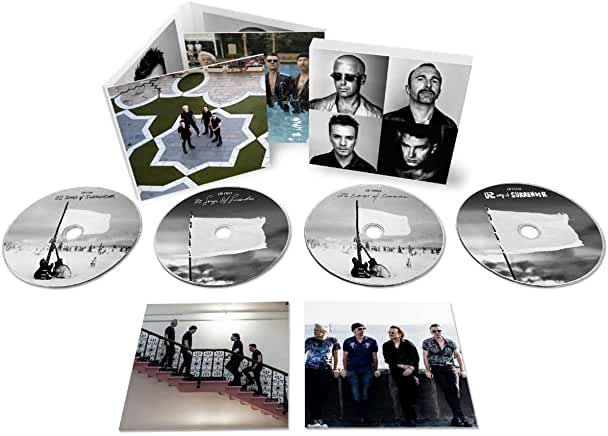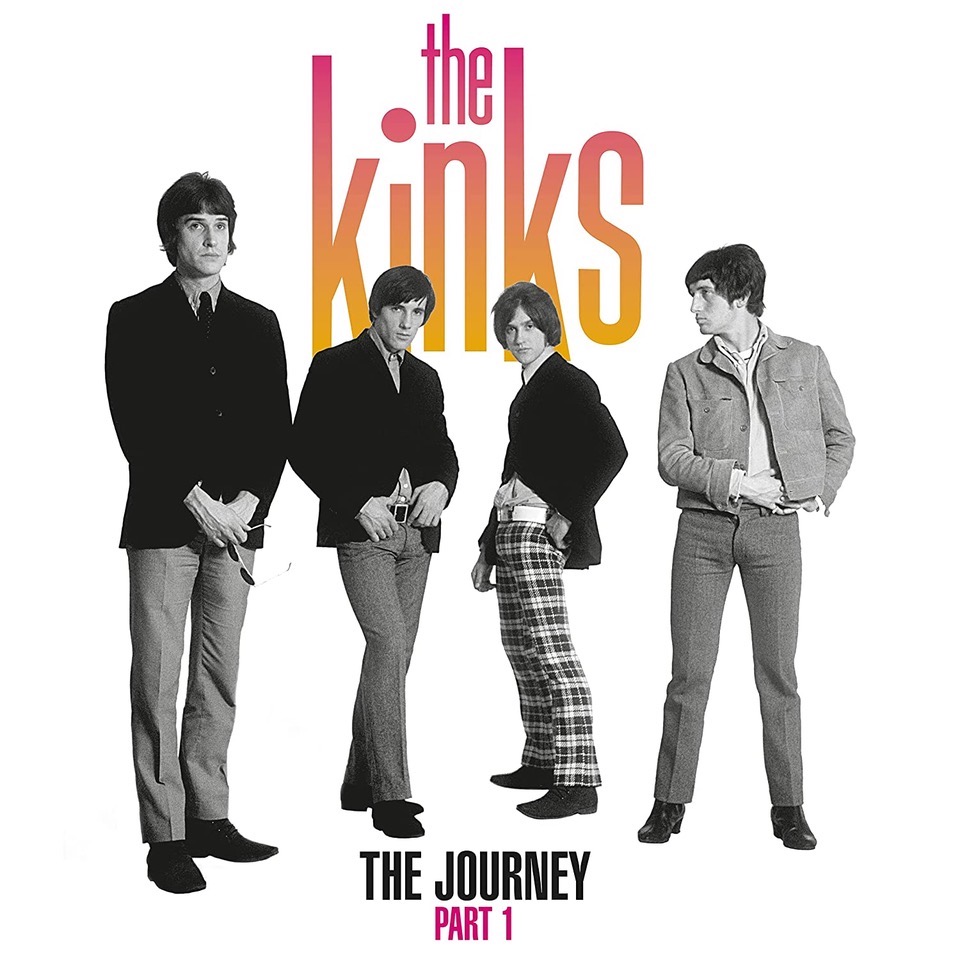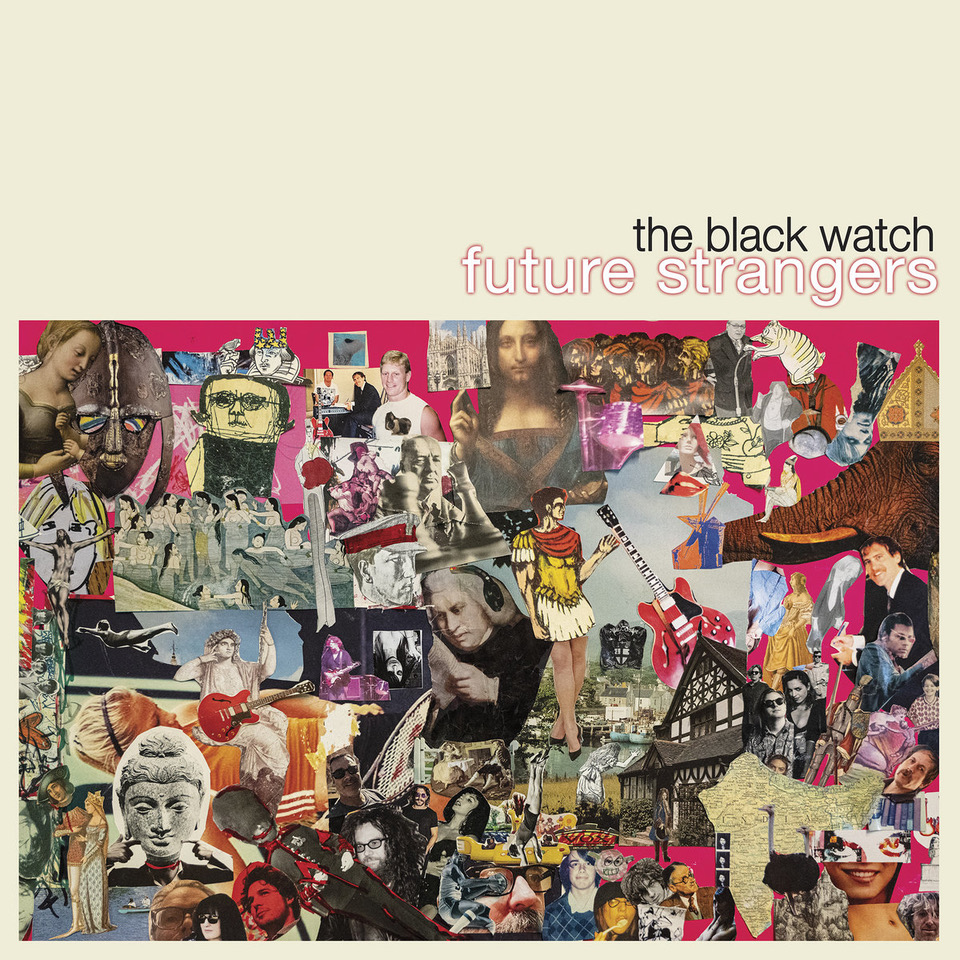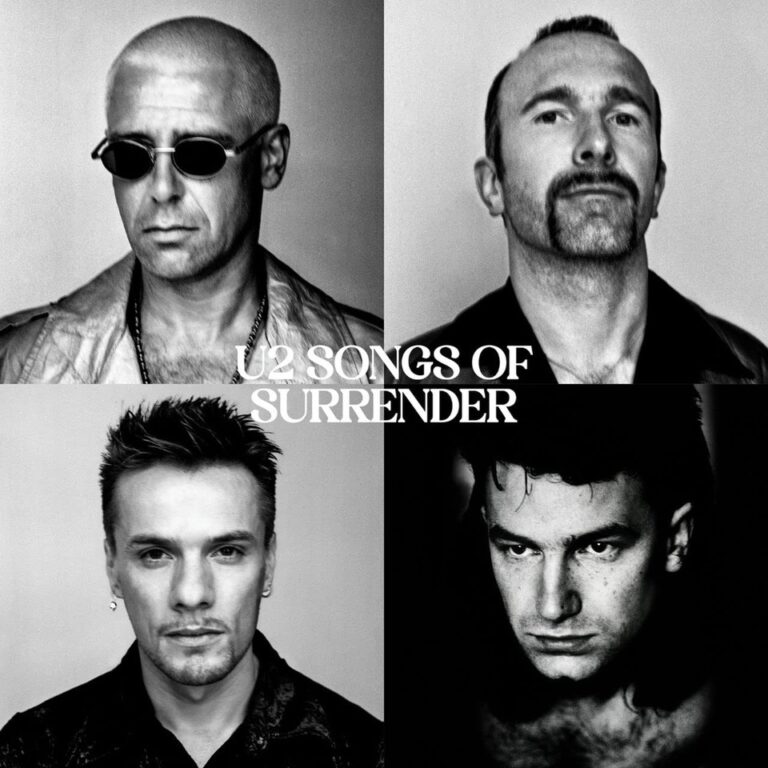At first glance, the list of familiar tunes on U2’s Songs of Surrender might suggest an anthology of previously released material or a collection of demos, rehearsal recordings, and alternate takes from the vaults. In fact, it’s neither. Like such artists as Paul Simon and Cat Stevens, U2 has succumbed to the temptation to revisit and reinterpret its old material. The 40 tracks in this numbered, limited-edition, four-CD set are all newly recorded renditions of songs from the group’s catalog.
You’ll find many though not all of U2’s best and best-known songs in the package, including Achtung Baby’s “One”; The Joshua Tree’s “Where the Street Have No Name,” “I Still Haven’t Found What I’m Looking For,” and “With or Without You”; All That You Can’t Leave Behind’s “Stuck in a Moment You Can’t Get Out Of” and “Beautiful Day”; The Unforgettable Fire’s “Pride (In the Name of Love)”; War’s “Sunday Bloody Sunday”; and How to Dismantle an Atomic Bomb’s “Vertigo.” The program also embraces some deep cuts.
“Much of our work was written and recorded when U2 were a bunch of very young men,” explains guitarist and keyboardist The Edge, who compiled and produced the set. “Those songs mean something quite different to us now…We started to imagine what it would be like to bring those songs back with us to the present day and give them the benefit, or otherwise, of a 21st century reimagining.”
The Edge cogently sums up the result of that imagining when he notes that “intimacy replaced post-punk urgency” on the new recordings, which differ dramatically from the originals. Bono’s vocals are emotive but relatively subdued here and are more likely to be accompanied by soft piano and acoustic guitar than by ringing, rhythmic electric guitar work. Some lyrics have been revamped as well. The 2023 version of “Red Hill Mining Town” tells its story in the past tense, for example, while “Walk On,” which is now subtitled “(Ukraine),” has some new lines that address the war there.

Everything on Songs of Surrender is well performed; the material ranges only from very good to great; and nothing here suggests that Bono isn’t still one of the world’s finest rock singers. Moreover, the stripped-down productions put more focus on some of the excellent lyrics than the original recordings did. A few tracks – such as “Stay (Faraway, So Close!),” which garners a nuanced Bono vocal – outshine the originals by any measure.
All that said, the lion’s share of these recordings sound relatively enervated compared with the frequently anthemic well-known versions, whose pulsating rhythms, high-octane guitar work, and spirited vocals prove a good match for lyrics that invariably deal with intense subject matter. After an organ intro, for example, the original “Where the Streets Have No Name” explodes like a bomb, with a tempo of 126 beats per minute, prominent electric guitar, and a passion-soaked Bono vocal. The new rendition, on the other hand, is a quiet, slow-paced meditation. Similarly, the new version of “Beautiful Day” replaces the original’s exuberant music with gentle understatement.
If forced to choose, many listeners would probably opt for the previous renditions of most of these songs. Of course, though, you don’t have to choose, and it’s likely that lots of U2 fans will appreciate the opportunity to own both versions.
Lynn Miles Shines Again
Never mind the subject of Carly Simon’s “You’re So Vain” and whatever Billie Joe and his girlfriend were throwing off the Tallahatchie Bridge; popular music’s biggest mystery may be why pop/folk artist Lynn Miles still isn’t a household name in the U.S.
Miles (who once served as Alanis Morissette’s voice teacher) is the kind of singer you can fall in love with on first listen. She also writes gorgeous melodies and deft, emotive lyrics. Her 15 albums to date have won her a solid fan base in her native Canada, not to mention a long list of awards and other honors.
Maybe with LP number 16, TumbleWeedyWorld, Americans will finally discover what folks north of the border already appreciate. Playing rhythm guitar on the album, Miles delivers 10 sterling originals, two penned with co-writers. Her acoustic backup crew – which contributes stand-up bass, mandolin, guitar, dobro, banjo, and violin – effortlessly shifts gears to fit the mood of each number.
Like Miles’s earlier albums, this one mostly focuses on matters of the heart. In the lilting “Johnny without June,” for example, the protagonist tells a lost lover that without her, “I’m Johnny without June.” (And in case anyone misses the Johnny Cash/June Carter connection, she adds, “I’d give anything to walk the line…to go down in that ring of fire.”) Another number, “Night Owl,” begins with a stanza that suggests a focus just on how the singer likes to stay up late, but this song also winds up being about a relationship, as she confides, “I wish you were a night owl too…You like the sun, I like the moon…so by the time you wake up I’ll be gone.”
Many of the other lyrics are equally melancholic – Miles calls these “hurtin’ songs about two people who can’t make things work” – but the music nevertheless radiates warmth. You get the sense from these performances that the singer has had her share of real-life heartbreak but also that she finds solace in her music. You likely will as well.
The Kinks Chronicle Their Journey

In recent years, the Kinks have issued several massive 50th aanniversary anthologies, such as last year’s Muswell Hillbillies/Everybody’s in Show-biz—Everybody’s a Star, an eight-pound box stuffed with CDs, LPs, books, a Blu-ray, and assorted keepsakes. By contrast, The Journey, Part 1 is a scaled-back affair, with 36 remastered tracks (all but 10 in the original mono) on two CDs in a cardboard sleeve.
Eight of the numbers come from the early 1970s while the rest first appeared in the 1960s, and all but 10 are presented in the original mono. Group prime mover Ray Davies and bandmates Dave Davies and Mick Avory handpicked the selections, which are grouped into four themed sections. The first, for example, includes “songs about becoming a man, the search for adventure, [and] finding an identity and a girl.”
Several of the Kinks’ biggest singles are here, including “You Really Got Me,” “All Day and All of the Night,” and “Tired of Waiting for You,” but if it’s the hits you’re primarily after, you can find more comprehensive anthologies. This set seems more designed for serious fans who will be interested in its relatively obscure material, such as Dave’s “Wait Till the Summer Comes Along” and Ray’s “Dandy,” which is better known internationally via Herman’s Hermits’ hit version.
An accompanying booklet contains comments about each song by the band’s members, most of which aren’t particularly revealing. However, if you thought Ray had a woman in mind when he penned “Tired of Waiting for You,” you’ll be surprised to learn that he wrote the song about “waiting for the 102 bus before I could afford a mini-cab.”
Also Noteworthy

The Black Watch, Future Strangers. Talk about perseverance! This is the 21st album from John Andrew Fredrick’s the Black Watch, an alt-rock outfit that has been making records for more than 35 years. The group hasn’t exactly become a household name – it titled a 2019 best-of set 31 Years of Obscurity – but you’ll struggle to figure out why when listening to its music. Future Strangers is particularly terrific. Jam-packed with scintillating guitar work, ear-candy hooks, and hypnotic beats, it recalls such outfits as Echo and the Bunnymen, Modern English, and Psychedelic Furs.
Lisa Said, Missed Connections. Rock singer/songwriter Lisa Said (pronounced Say’eed), who has released several previous LPs and EPs under her own name and with a band called Piramid [sic] Scheme, delivers some of her best work on the digital-only Missed Connections. Said – who grew up in Memphis, Tennessee, with Egyptian parents and moved to Lisbon, Portugal, in 2020 – features intimate vocals and introspective lyrics that seem like diary entries. The instrumentation, which features everything from accordion to pedal steel, melds Eastern and South American influences with American rock, folk, and country. A good reference point for this too-brief (21-minute) set might be such Velvet Underground songs as “Candy Says” (which Said has covered) and “After Hours.”
Jeff Burger’s website, byjeffburger.com, contains five decades’ worth of music reviews, interviews, and commentary. His books include Dylan on Dylan: Interviews and Encounters, Lennon on Lennon: Conversations with John Lennon, Leonard Cohen on Leonard Cohen: Interviews and Encounters, and Springsteen on Springsteen: Interviews, Speeches, and Encounters.



